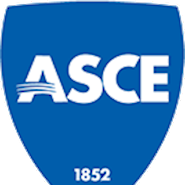ASCE has honored Jane McKee Smith, Ph.D., P.E., D.CE, NAE, Dist.M.ASCE, with the 2022 International Coastal Engineering Award for her outstanding career in coastal engineering research crucial for understanding hurricanes and storm surge, and for her leadership in making coastal communities around the world safer.
Smith has had a distinguished career in the U.S. Army Corps of Engineers, serving as a research engineer before retiring as a senior research scientist at the Coastal and Hydraulics Laboratory in Vicksburg, Mississippi. During her 36-year career, she codeveloped the Corps’ wave model, STWAVE, used in coastal construction. She was the lead developer of SWIMS, a model for fast high-fidelity forecasts of hurricane surge and waves for islands that was used for evacuation planning in the last two Hawaiian Island hurricanes, and which was deployed by FEMA and Central Pacific Hurricane Center for evacuation planning.
One of her most significant contributions to the profession has been her work with predicting storm waves and ocean surges. Her early research in the area was with coastal hydrodynamics, including nearshore waves and currents, three-dimensional structure of nearshore currents, wave-current interaction, wave generation, and shallow-water wave transformation. Much of this involved large multi-institutional laboratories and well-known, national field campaigns. Her work in this area has been critical to a much better understanding of these physics.
Smith’s service to coastal engineering has taken many forms. Most importantly, she was the chair of the Coastal Engineering Research Council from 2014 to 2021. Prior to being chair, she served years as the CERC secretary. Smith has also served on the COPRI Board of Governors and the ASCE Technical Region Board of Governors. She is currently on the editorial board of Coastal Engineering and the ASCE Journal of Waterways, Port, Coastal, and Ocean Engineering.
The International Coastal Engineering Award is given to an individual who has made significant contributions to the advancement of coastal engineering in the form of engineering design, teaching, professional leadership, research, planning, or a combination thereof.



